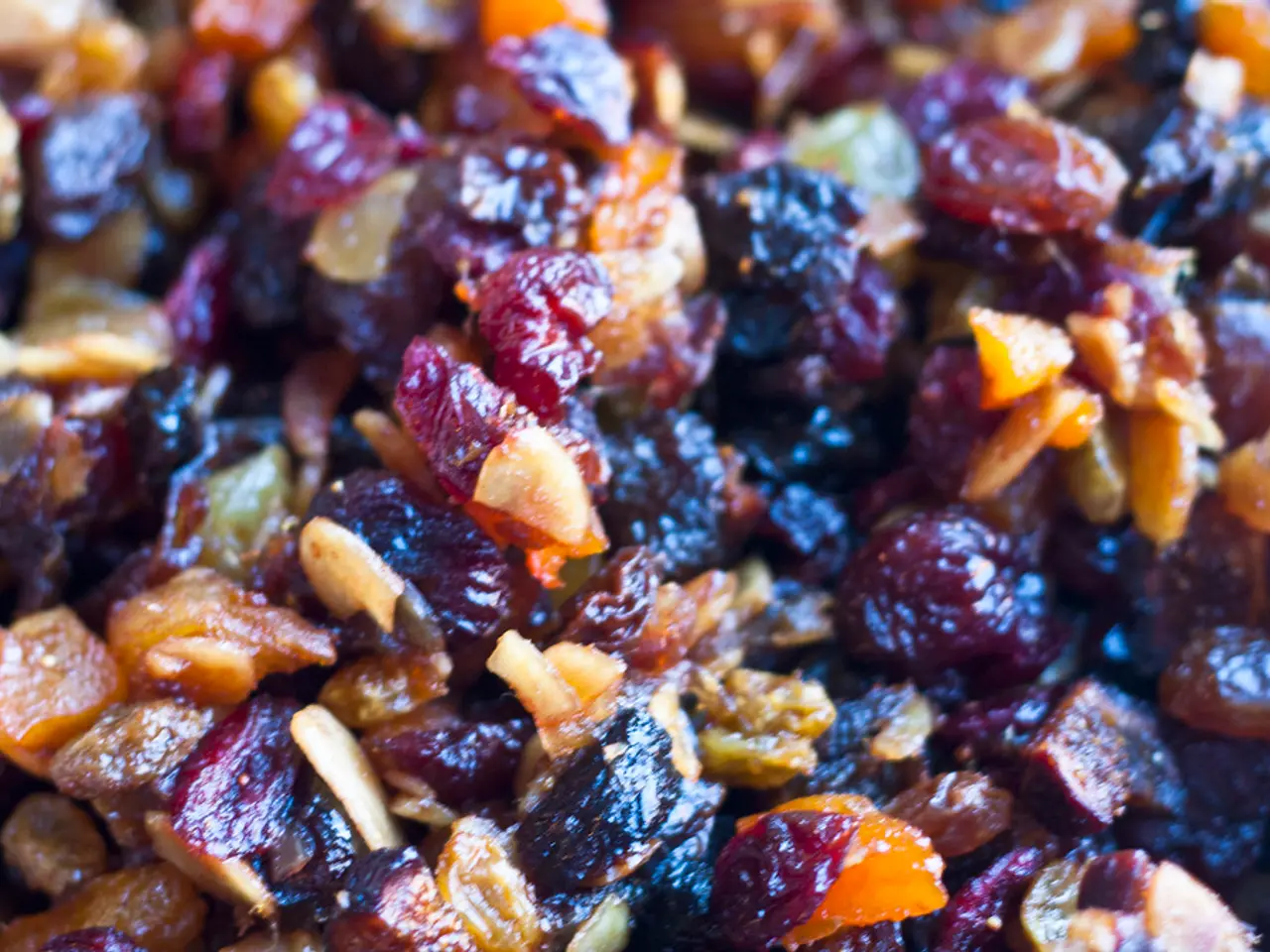China's erythritol imports face a setback as Cargill scores an initial win in the anti-dumping case against them, yet this decision may generate unexpected repercussions.
The US Department of Commerce has imposed a hefty triple-digit duty on US importers of erythritol from China, a move that will significantly increase costs for food and beverage companies relying on this sweetener from China [1][2][4].
The 371% anti-dumping duty on Chinese erythritol imports could necessitate reformulation or sourcing alternatives, particularly for companies focused on organic or Non-GMO certified sweeteners. Chinese erythritol often dominates the supply due to its competitive pricing, making the transition challenging.
The potential impacts include cost increases and supply chain disruptions, reformulation challenges, and limited domestic or alternative sources [1][2]. Companies may face reduced supply availability or affordability in the short term, and price hikes could squeeze margins or be passed on to consumers.
Reformulation to other sweeteners may present challenges, as organic and Non-GMO certifications require strict documentation and source control. Alternatives such as stevia, monk fruit extracts, sugar alcohols (xylitol, maltitol), or allulose vary in taste, cost, and certification compatibility [2][3].
Securing organic or Non-GMO certified erythritol outside China may be difficult, and other non-China erythritol suppliers might have limited supply or be costlier. US companies might explore building or supporting local organic or Non-GMO erythritol production capabilities, though this requires time and capital investment.
Icon Foods, a company advocating for the big CPG companies to use their voice to change the Dept. of Commerce's opinion on the anti-dumping petition for erythritol, is diversified on all its products, with at least two to three supply chain partners to ensure security in the supply chain and the ability to pivot quickly due to tariff uncertainties [5].
The European Commission has also imposed a provisional antidumping duty on certain erythritol from China [6]. Icon Foods wants the non-GMO and organic erythritol to be exempt from duties, with safeguards in place to prevent Chinese firms from claiming products as organic or non-GMO without proper validation [7].
For firms that use organic or Non-GMO Project certified sweeteners, buying from Cargill is not an option due to the use of GM substrates in their erythritol production process [8]. Tapioca fiber, some of which Icon Foods sources from Indonesia, may be subject to a 19% tariff unless exemptions are secured [9]. Inulin, much of which comes from the EU, may be subject to a 15% tariff unless exemptions are secured [10].
Cargill, the only US manufacturer of erythritol, claims to have been "materially injured" by Chinese-made erythritol sold in the US at "less than fair value" [11]. The US market is at risk of running out of non-GMO and organic erythritol, and once it's gone, it may not be available again [7].
[1] https://www.jdsupra.com/legalnews/us-department-of-commerce-imposes-371-76677/ [2] https://www.foodnavigator-usa.com/Article/2023/03/21/US-erythritol-import-duties-could-force-food-companies-to-reformulate-or-source-alternatives [3] https://www.foodnavigator-usa.com/Article/2023/03/21/US-erythritol-import-duties-could-force-food-companies-to-reformulate-or-source-alternatives [4] https://www.foodbusinessnews.net/articles/110569-us-erythritol-duties-could-force-companies-to-reformulate-or-source-alternatives [5] https://www.foodnavigator-usa.com/Article/2023/03/21/US-erythritol-import-duties-could-force-food-companies-to-reformulate-or-source-alternatives [6] https://www.foodnavigator-usa.com/Article/2023/03/21/US-erythritol-import-duties-could-force-food-companies-to-reformulate-or-source-alternatives [7] https://www.foodnavigator-usa.com/Article/2023/03/21/US-erythritol-import-duties-could-force-food-companies-to-reformulate-or-source-alternatives [8] https://www.foodnavigator-usa.com/Article/2023/03/21/US-erythritol-import-duties-could-force-food-companies-to-reformulate-or-source-alternatives [9] https://www.foodnavigator-usa.com/Article/2023/03/21/US-erythritol-import-duties-could-force-food-companies-to-reformulate-or-source-alternatives [10] https://www.foodnavigator-usa.com/Article/2023/03/21/US-erythritol-import-duties-could-force-food-companies-to-reformulate-or-source-alternatives [11] https://www.foodnavigator-usa.com/Article/2023/03/21/US-erythritol-import-duties-could-force-food-companies-to-reformulate-or-source-alternatives
In the face of increasing costs due to the anti-dumping duty on erythritol imports, food and beverage companies may consider altering their lifestyles, as they explore alternative sweeteners such as stevia, monk fruit extracts, or allulose to maintain their organic or Non-GMO certified products. This shift in technology, from Chinese erythritol to other sweeteners, might present challenges in terms of taste, cost, and certification compatibility.
The future of sports nutrition, particularly for companies focusing on organic or Non-GMO certified products, could be affected by the limited availability and high costs of certain sweeteners, as the US Department of Commerce's decision on erythritol imports could potentially disrupt their supply chains.




